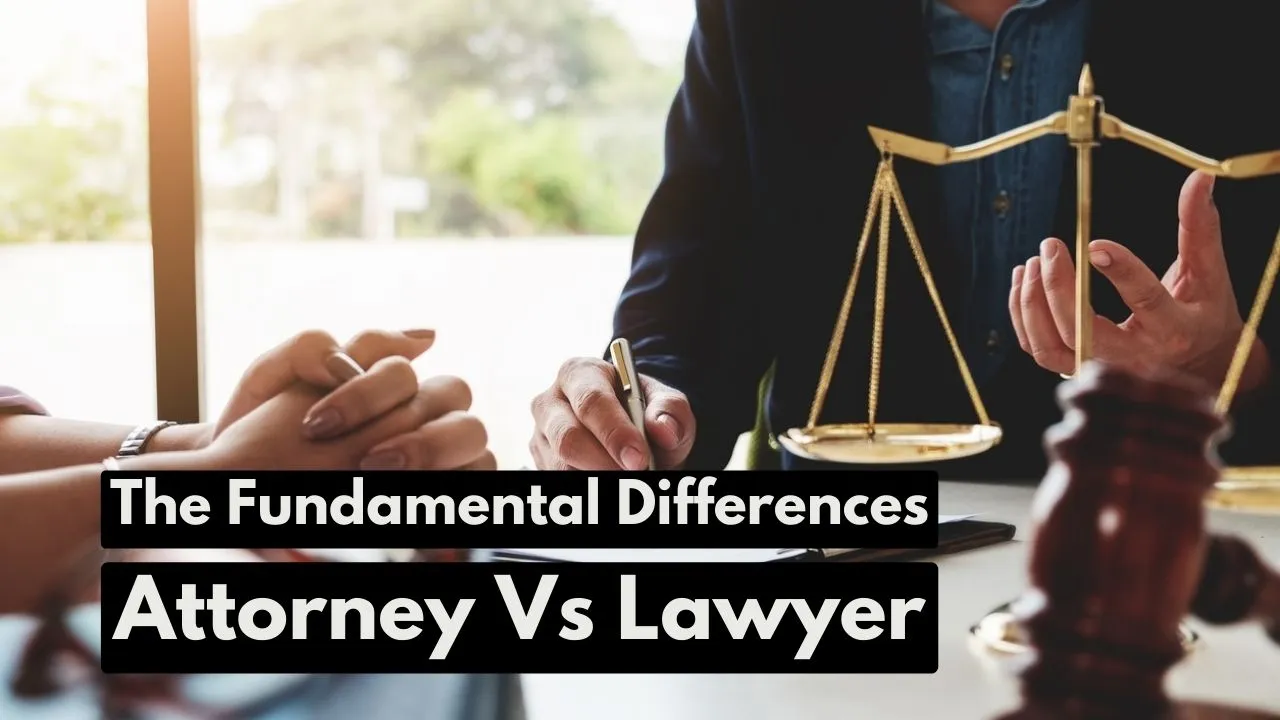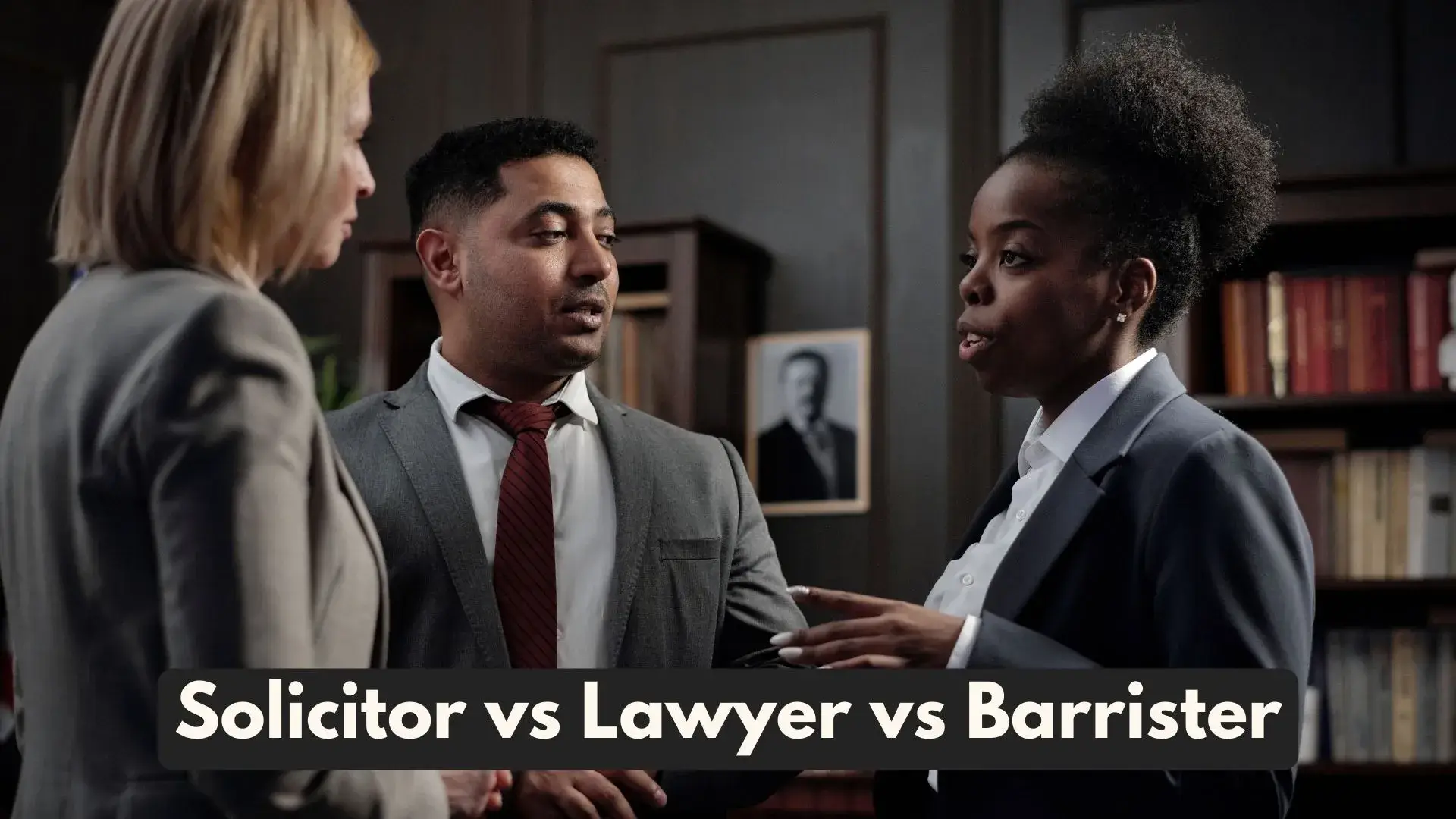Understanding the roles and responsibilities of lawyers is essential for both legal professionals and those seeking legal assistance.
Lawyers play a central role in our society, serving as advocates, advisors, and representatives for individuals, businesses, and institutions.
There are several types of lawyers and have their own set of roles and responsibilities.
In this article, I’ve mentioned all the common practices of a Lawyer Roles & Responsibilities, that almost all types of lawyers have to follow.
Lawyer and Their Significance
A lawyer, also referred to as an attorney, counselor, or counsel, is a licensed professional trained in the law. A lawyer is an individual who has undergone legal education, obtained a law degree, and is licensed to practice law.
Lawyers play a vital role in society, and their significance extends far beyond courtroom dramas.
They play a crucial role in society by:
- Advising clients on their legal rights and obligations in various situations.
- Representing clients in court proceedings, acting as their advocate, and ensuring their voice is heard.
- Drafting legal documents such as contracts, wills, and agreements.
- Negotiating settlements on behalf of their clients.
- Upholding the law and ensuring the fair and just application of legal principles.
Key Aspects of a Lawyer Roles & Responsibilities

✅ Lawyers Advise Their Clients
Lawyers provide legal advice to their clients. This involves reviewing cases, explaining relevant laws, and guiding clients on actions to protect their legal rights.
Lawyers have to keep clients fully informed about their legal options, including risks and benefits, is crucial.
As a lawyer, providing legal advice to clients is a critical aspect of your role. As a client, you have to make sure that you and your lawyers should be on the same page. For that, you need to have a proper discussion.
To help you with that, let’s see the roles and responsibilities of lawyers-
✔️ Reviewing Cases: Lawyers carefully analyze the facts and circumstances of each case presented by their clients. This involves studying relevant documents, evidence, and legal precedents.
✔️ Explaining Relevant Laws: Lawyers interpret and explain the applicable laws to clients. They break down complex legal jargon into understandable terms, ensuring clients grasp their rights and obligations.
✔️ Guiding Clients on Actions: Based on their assessment, lawyers recommend strategies and courses of action. This could involve negotiation, litigation, or alternative dispute resolution methods.
✔️ Risk Assessment: Lawyers help clients understand the potential risks associated with different legal paths.
They weigh pros and cons, considering both legal and practical implications.
✔️ Ethical Considerations: Lawyers must adhere to professional ethics while advising clients. They avoid conflicts of interest and prioritize clients’ best interests.
✅ Lawyer Represent Their Client
Lawyers play a vital role in court proceedings. They argue cases, present evidence, and ensure judges and juries understand their clients’ positions.
Familiarity with relevant laws, rules of evidence, and court procedures is essential. Effective representation requires not only legal knowledge but also strong communication skills and a deep understanding of the legal system.
Representing clients in court is a core responsibility for lawyers.
✔️ Advocacy in Court: Lawyers present arguments on behalf of their clients during court hearings, trials, and other legal proceedings. They use their legal knowledge, research, and communication skills to advocate effectively.
✔️ Case Preparation: Before court appearances, lawyers prepare thoroughly. This involves:
- Gathering evidence
- Interviewing witnesses
- Drafting legal documents (such as pleadings and motions)
- Analyzing relevant laws and precedents
✔️ Oral Arguments: Lawyers present oral arguments to judges, juries, or other decision-makers. They explain their client’s position, challenge opposing arguments, and address legal issues.
✔️ Evidence Presentation: Lawyers introduce evidence during trials. This includes:
- Witness testimony
- Documents
- Exhibits
- Expert opinions
✔️ Cross-Examination: Lawyers engage in cross-examination of witnesses presented by the opposing side. They aim to clarify facts, challenge credibility, and highlight inconsistencies.
✔️ Objections and Rulings: Lawyers make objections during trial when they believe rules of evidence or procedure are violated. The judge rules on these objections.
✔️ Legal Etiquette: Lawyers must adhere to courtroom etiquette and respect court rules. This includes addressing the judge, opposing counsel, and witnesses appropriately.
✅ Settlement Negotiations
Many disputes can be resolved without a full trial.
Lawyers negotiate settlements between clients and other parties to resolve issues efficiently.
In a settlement negotiation, lawyers play crucial roles in representing their client’s interests, facilitating communication, and ensuring that the settlement agreement is fair and legally binding.
✔️ Purpose: Settlement negotiations aim to resolve disputes outside of court. Instead of going through a lengthy trial, parties try to reach an agreement.
✔️ Process: Lawyers representing each side engage in discussions. They explore potential solutions, compromises, and terms. Negotiations can happen through letters, meetings, or mediation.
✔️ Factors Considered:
- Strength of the case: Lawyers assess the likelihood of winning at trial.
- Costs and risks: Going to trial can be expensive and uncertain.
- Client’s goals: Lawyers consider what the client wants to achieve.
✔️ Elements of a Settlement:
- Payment: Often involves a monetary amount.
- Conditions: Specific actions or promises by one or both parties.
- Release: Agreement not to pursue further legal action.
✔️ Benefits:
- Efficiency: Settling avoids lengthy court proceedings.
- Control: Parties have a say in the outcome.
- Privacy: Settlements are confidential.
✅Lawyers Draft Various Legal Documents
Lawyers are responsible for drafting various legal documents, such as contracts, wills, and agreements.
These documents must be legally binding, clear, and aligned with clients’ objectives.
Drafting legal documents is a crucial task for lawyers. Let’s explore this responsibility in detail:
✔️ Contracts: Lawyers create contracts that outline the terms and conditions of agreements between parties. Contracts can cover various areas, such as business transactions, employment, real estate, and more. Key elements include parties’ names, obligations, payment terms, and dispute resolution mechanisms.
✔️ Wills and Trusts: Lawyers assist clients in drafting wills to specify how their assets should be distributed after their passing. They also create trust documents for managing assets during a person’s lifetime or after their death.
✔️ Business Agreements: Lawyers prepare business-related documents, including:
✔️ Partnership agreements: Outlining rights and responsibilities of partners.
✔️ Operating agreements: Governing limited liability companies (LLCs).
✔️ Shareholder agreements: Addressing ownership and management of corporations.
✔️ Real Estate Documents: Lawyers draft real estate contracts, such as:
✔️ Purchase agreements: Detailing property sales.
✔️ Lease agreements: Defining terms for renting or leasing property.
✔️ Intellectual Property Documents: Lawyers create intellectual property (IP) documents, including:
✔️ Patent applications: Describing inventions.
✔️ Trademark registrations: Protecting brand names and logos.
✔️ Clear Language and Precision: Legal documents must be clear, concise, and precise.
✅ Lawyers To Conduct Legal Research

Legal research is a fundamental aspect of a lawyer’s work, and it involves investigating legal issues, statutes, regulations, case law, and other relevant sources of law to support their clients’ cases or provide legal advice.
Lawyers must be knowledgeable about the law and conduct research to support their client’s cases.
Legal research is a dynamic process that requires critical thinking, attention to detail, and staying up-to-date with legal developments. This involves reviewing court decisions, laws, and regulations.
✔️ Understanding the Legal Issue: Before diving into research, clarify the legal issue you’re addressing. Gather essential facts about the case, including the “who, what, why, when, where, and how.”
Identifying Relevant Sources of Law:
✔️ Pinpoint the legal issue within the broader context.
✔️ Determine which types of legal sources you need:
✔️ Secondary sources: Start here for an overview (e.g., legal treatises, law review articles).
✔️ Primary sources: Dive deeper into statutes, regulations, and court opinions.
Researching and Analyzing:
✔️ Search for relevant laws using legal databases, libraries, and online resources.
✔️ Analyze statutes, regulations, and case law to find support for your legal argument.
✔️ Check the currency of legal sources—laws evolve over time.
Applying the Law to the Facts:
✔️ Synthesize your findings and apply them to the specific case. Consider how legal principles align with the facts and circumstances.
✔️ Documenting Your Research:
✔️ Keep detailed notes on your research process.
✔️ Cite the legal authorities you rely on accurately.
✅ Ethical Conduct
Ethical conduct is a cornerstone of the legal profession and encompasses a set of principles and standards that guide lawyers’ behavior and decision-making.
Lawyers adhere to a strict code of ethics. They act in clients’ best interests and avoid unethical or illegal activities.
Violating professional conduct rules can lead to disciplinary action, including disbarment.
These principles are designed to uphold the integrity of the legal system, promote fairness and justice, and ensure the trust and confidence of clients, courts, and the public.
✔️ Client Trust and Confidence: Upholding ethical standards builds trust between lawyers and their clients. Clients rely on lawyers to act in their best interests, maintain confidentiality, and avoid conflicts of interest.
Ethical conduct is a cornerstone of the legal profession and encompasses a set of principles and standards that guide lawyers’ behavior and decision-making.
✔️ Professional Reputation: Lawyers with a strong ethical track record earn respect within the legal community. A positive reputation enhances career prospects and referrals.
✔️ Legal System Integrity: Ethical lawyers contribute to the integrity of the legal system. Their actions ensure fairness, justice, and adherence to the rule of law.
✔️ Avoiding Malpractice Claims: Ethical behavior reduces the risk of malpractice lawsuits. Violations can lead to legal liability and financial consequences.
✔️ Bar Association Rules and Codes: Lawyers must follow professional conduct rules set by bar associations. These rules cover areas like client communication, conflicts of interest, and honesty.
✔️ Client Confidentiality: Lawyers must safeguard client information. Breaching confidentiality damages trust and can harm clients’ cases.
✔️ Avoiding Disbarment: Disbarment is the ultimate consequence of serious ethical violations. It means losing the right to practice law.
✅ Lawyers Protects Client’s Rights
Lawyers play a critical role in safeguarding clients’ legal rights. Protecting clients’ rights is not only a fundamental responsibility but also a sacred duty that lies at the heart of the lawyer-client relationship.
They must be well-versed in the laws governing these rights and work to prevent violations.
Safeguarding clients’ legal rights is a fundamental duty for lawyers.
Let’s explore this responsibility further:
✔️ Understanding Legal Rights: Lawyers must thoroughly grasp the legal rights applicable to their clients. These rights can vary based on the context, such as civil rights, property rights, or constitutional rights.
✔️ Advocacy and Representation: Lawyers advocate zealously for their clients’ rights. Whether in court, negotiations, or administrative proceedings, they ensure clients’ interests are protected.
✔️ Preventing Violations: Lawyers actively work to prevent violations of their client’s rights. This involves monitoring actions by opposing parties, government agencies, or other entities.
✔️ Legal Research and Analysis: Lawyers stay informed about relevant laws. They research case law, statutes, and regulations to understand how rights apply in specific situations.
✔️ Challenging Unlawful Actions: When clients’ rights are violated, lawyers take appropriate legal action. This may include filing lawsuits, seeking injunctions, or appealing decisions.
✔️ Ethical Considerations: Lawyers must balance clients’ rights with ethical obligations. Upholding professional conduct ensures clients’ trust and confidence.
👉🏼 Lawyer vs Advocate : Understanding The Distinctions & Roles
FAQs Related To Roles & Responsibilities Of Lawyer
What responsibilities do lawyers have towards their clients?
A: Lawyers are responsible for advocating for their clients’ interests, maintaining confidentiality, providing competent representation, and communicating effectively.
How do lawyers contribute to the legal system?
Lawyers uphold the rule of law by ensuring fair trials, interpreting laws, and advocating for justice. They also play a crucial role in shaping legal precedents through their arguments in court.
What ethical obligations do lawyers have?
Lawyers must adhere to ethical standards such as honesty, integrity, and loyalty to their clients. They are also bound by confidentiality and must avoid conflicts of interest.
What are some common tasks lawyers perform on behalf of their clients?
Lawyers research legal issues, prepare legal documents (such as contracts or wills), negotiate settlements, represent clients in court proceedings, and provide legal advice and guidance.
How do lawyers interact with other professionals within the legal system?
Lawyers collaborate with judges, court personnel, other attorneys, and legal experts to navigate legal processes, resolve disputes, and ensure the fair administration of justice.
Conclusion
In conclusion, lawyers play a vital role in society by providing legal representation, advice, and advocacy to individuals, businesses, and organizations.
The lawyer’s roles and responsibilities enclose a wide range of tasks, from advising clients to representing them in court. Upholding ethical standards and maintaining professionalism are fundamental to the practice of law.
As you know there are different types of lawyers for several different industries. Each of them has its own set of roles and responsibilities.
So, you may search for “Corporate lawyers roles” or “Sports lawyer roles” and learn about them individually. This article only deals with common areas of practice done by lawyers.













![Case Management Software - Buyer's Guide [ 6 Must-Check Points ] By thelegalstories.Com](https://thelegalstories.com/wp-content/uploads/2024/01/Red-and-Black-Dark-Gamer-Sports-YouTube-Outro-1.webp)




Leave a Reply